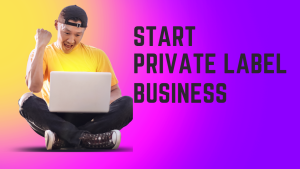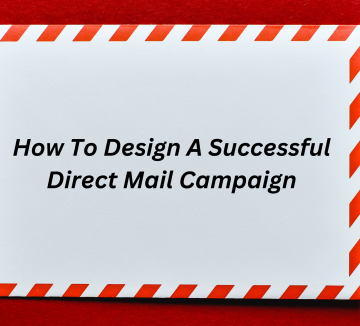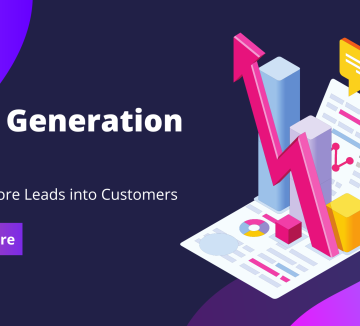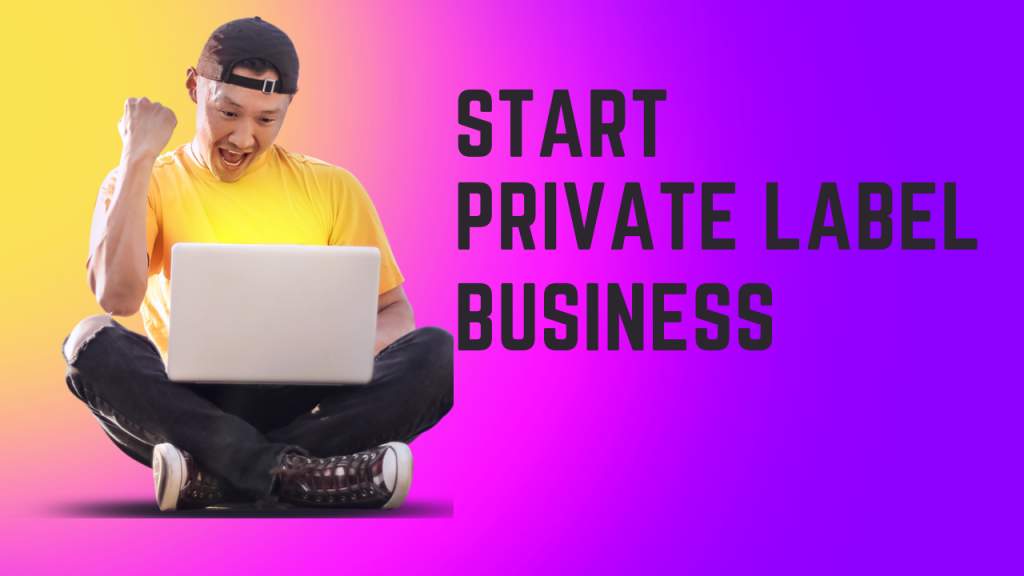Last Updated on March 18, 2023 by David
Are you an entrepreneur looking to start a business that offers unique, customizable products? Look no further than the world of private labeling.
Whether you want to start Private labeling amazon or wondering how to scale your white label startup, my comprehensive guide will walk you through the ins and outs of private labeling, from understanding the concept to launching your brand. Let’s dive in!
What is private labeling?
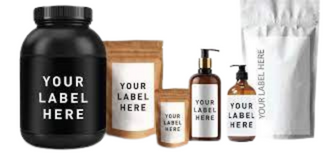
Private labeling refers to manufacturing products under a brand’s name, not the manufacturer’s.
In simpler terms, a private label business sources products from a manufacturer and then rebrands and sells them under its name.
Also commonly referred to as white label business, this option allows entrepreneurs to create a unique brand identity without the burden of manufacturing their products from scratch. Many successful businesses, such as cosmetics, clothing, and food, rely on private labeling.
How does private labeling work?
Private labeling starts with identifying a product or a range of products you want to sell. You then collaborate with a manufacturer to create and package these products under your brand name.
The manufacturer often provides a range of customization options, including packaging, labeling, and product formulation.
Once the products are ready, you sell them through your distribution channels, such as an online store or a physical retail space.
How to start a private label business
Identify your niche: Choose one that aligns with your interests, expertise, and the target market’s needs.
Here is how to choose a profitable niche for your private label products business.
- Choose a niche that aligns with your interests and expertise for motivation and better decision-making.
- Analyze market trends to identify niches with increasing demand and growth potential.
- Look for a niche with a sizable target market and room for growth.
- Aim for a niche with moderate competition, allowing you to create a unique selling proposition.
- Understand and address customer pain points to offer solutions that competitors are not providing.
- Ensure the chosen niche has the potential for profitable products with healthy profit margins.
- Opt for a niche with easily customizable products to create a unique offering.
- Choose a niche that offers potential for scaling your business and expanding product lines.
- Consider the impact of seasonality on your niche to avoid inconsistent cash flow and inventory challenges.
- Validate your niche through market research, surveys, or an MVP to minimize the risk of failure.
Conduct product research: Analyze your niche and identify potential products that fit within it. Look for products with high demand, low competition, and good profit margins. The most Helpful Market Research Tools & Resources available online include:
- Think With Google Research Tools
- Census Bureau
- Make My Persona
- Tableau
- Paperform
- Statista
- Claritas MyBestSegment
- SurveyMonkey
Checkout our article on the Best Market Research Tools & Resources
Find a reliable manufacturer: Source a reputable private-label manufacturer specializing in your chosen niche. Consider their production capacity, product quality, and customization options.
Here are the Top Private Label Manufacturers In 2023
Here is a video of how to Find Private Label Manufacturers:
Develop your brand identity: Create a unique brand identity that differentiates your business from competitors. This includes developing a brand name, logo, tagline, and packaging design.
Establish distribution channels: Decide whether you’ll sell your products online, in brick-and-mortar stores, or through a combination. Set up your online store and/or negotiate with retailers to stock your products.
Create a marketing strategy: Develop a marketing plan to promote your brand and products, including social media, email marketing, search engine optimization (SEO), and advertising.
Checkout Best Marketing Strategies Here
Best private label manufacturers for creating a custom-branded product line
Alibaba
Alibaba is a leading B2B marketplace connecting businesses with thousands of manufacturers worldwide. You can find suppliers for almost any product and request customizations to suit your brand.
ThomasNet
ThomasNet is a comprehensive resource for finding North American-based manufacturers across various industries. This platform is ideal for entrepreneurs who prioritize working with local suppliers.
Global Sources
Global Sources is a B2B platform that connects businesses with Asian manufacturers. This platform offers various products and manufacturers, focusing on consumer electronics, fashion, and home products.
Makers Row
Makers Row is an online directory of American manufacturers specializing in clothing, accessories, and textiles. This platform is perfect for entrepreneurs looking to start a private label clothing line.
Best private label products to sell
a. Cosmetics and skincare products
b. Dietary supplements and vitamins
c. Organic and natural food products
d. Clothing and accessories
e. Home and kitchen products
f. Pet supplies
g. Eco-friendly and sustainable products
Launch your private label business
Once your products are ready, it’s time to launch your brand. Promote your products using your marketing strategy, create buzz on social media, and reach out to influencers and bloggers in your niche. Offer special promotions or giveaways to encourage initial sales and gather customer reviews. Track your sales, customer feedback, and marketing efforts to adjust your strategy and improve your brand’s performance.
Frequently Asked Questions
How much does it cost to start a private label business?
The cost of starting a private label business varies depending on the product, manufacturer, and marketing strategy. Budgeting for product development, packaging, branding, marketing, and distribution is essential. Generally, you can expect to invest anywhere from a few thousand dollars to several tens of thousands of dollars.
How long does it take to start a private label business?
Starting a private label business depends on product research, manufacturer lead times, and brand development. On average, it can take anywhere from 3-6 months to launch your private label brand.
Can I start a private label business with no experience?
Yes, you can start a private label business with no experience, but it’s crucial to invest time in researching your niche, understanding your target market, and learning about the private labeling process. Networking with other entrepreneurs and seeking advice from experts in the industry can also be beneficial.
How do I protect my private label brand?
Protecting your brand is essential to maintain your brand’s integrity and reputation. Register your brand name and logo as trademarks, and ensure your product formulations are unique or protected by patents, if applicable. Additionally, work with a reputable manufacturer that respects intellectual property rights and maintains confidentiality.
Conclusion
Starting a private label business can be a rewarding venture for entrepreneurs looking to create a unique brand and offer customizable products. By understanding the private labeling process, identifying the right niche and products, and partnering with a reliable manufacturer, you’ll be well on your way to launching a successful private label brand. Remember to continuously adapt and refine your marketing and sales strategies to stay ahead of the competition and grow your business.
